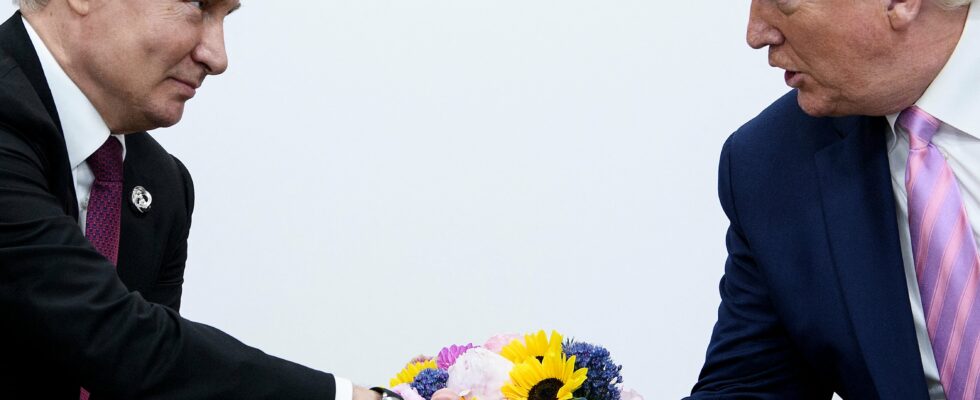On February 4, 1945, Stalin, Roosevelt and Churchill met on the shores of the Black Sea, in Crimea, to lay down the foundations for peace. The Yalta conference would lead to a sharing of the world – and in particular Europe – between the three future great victors of the Second World War. Eighty years later, will we see Donald Trump and Vladimir Putin sitting around a negotiating table to put an end to this war in Ukraine which is about to tip into its fourth year? The future American president has promised: he will resolve the conflict in less than twenty-four hours. But like Roosevelt in 1945, he will need cooperation from Moscow if he wants to achieve his goals. We remember the illusory “demanding dialogue”, led by Emmanuel Macron with the guest of the Kremlin a few days before the Russian invasion of Ukraine: can we really discuss with Vladimir Putin, a dictator who sends his soldiers to the butcher’s shop to try to eat up a few additional square kilometers in order to appear in a position of strength when it comes time to negotiate?
For now, Ukrainians continue to show the rest of the world their heroic courage. “We fight because it’s our home. We have no choice,” summarizes Maryna Kumeda, author of Diary of a Ukrainian woman (Editions de l’Aube, 2023).
In the chancelleries, diplomats are working out scenarios. With several convictions. Firstly, 2025 will indeed constitute a turning point in this war. As unpredictable as he is, Donald Trump will undoubtedly help resolve the situation. Anyone who already dreams of the Nobel Peace Prize certainly has the ambition. “It represents a difficulty but also a lot of opportunities in the eyes of Ukrainians,” estimates Anna Colin Lebedev, lecturer in political science at Paris-Nanterre.
But what peace are we talking about? Because, and this is the second conviction, Ukraine will have to accept territorial losses. On condition of obtaining solid guarantees both on the sovereignty of the country and on its physical security. But who will provide these assurances, when American aid to kyiv is currently on hold?
“2025 will confront everyone with their responsibilities, analyzes Camille Grand, researcher at the European Council for International Relations and former deputy secretary general of NATO. Europe will have to show that it is capable of taking over and assuming a greater share of the burden.” The time has come for European awakening so as not to leave Donald Trump and Vladimir Putin alone to negotiate an exit from the Ukrainian conflict. Because a just peace cannot be imagined without Ukraine and Europe. It is crucial to avoid repeating the Yalta fool’s game. The one who made Churchill say, only a year after the Crimea conference: “We will not overcome difficulties and dangers by hiding our faces. We will not make them disappear by simply waiting to see what will happen […]. What is needed is an arrangement and the longer we delay reaching it, the harder it will be to find and the greater the dangers that threaten us will become.” In 2025, these dangers have never threatened Europe so much since the post-war period.
.
